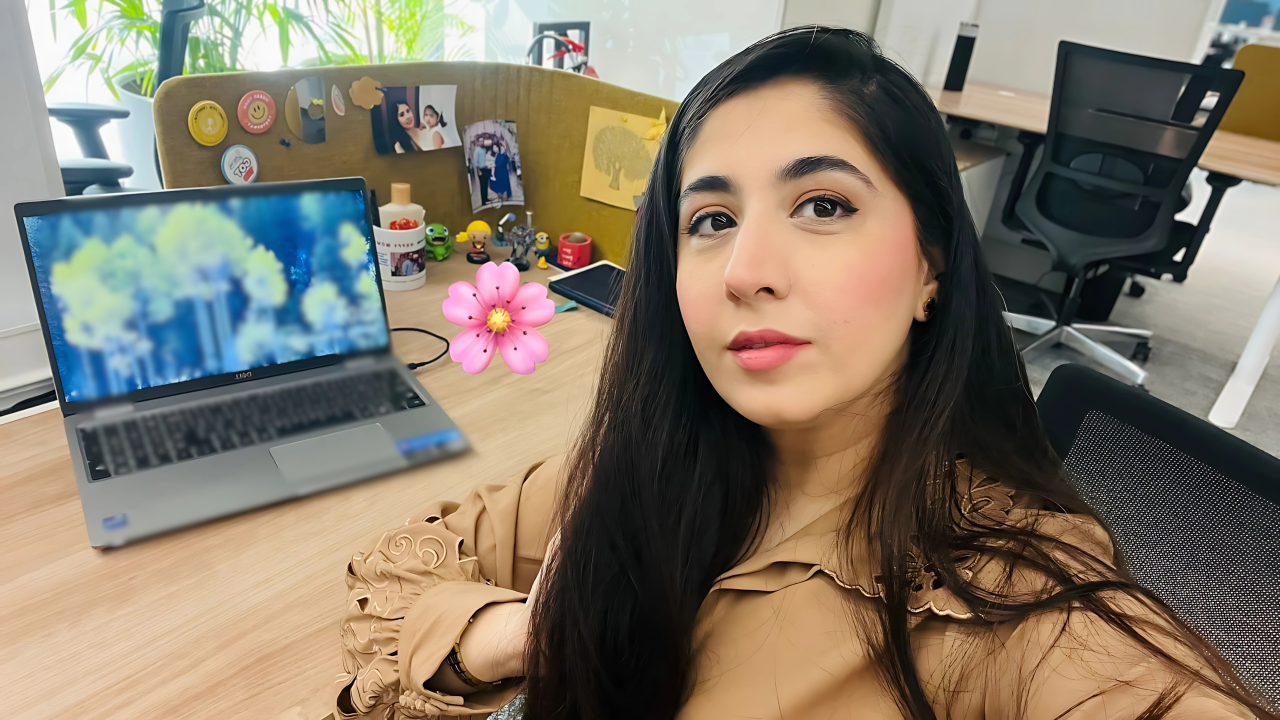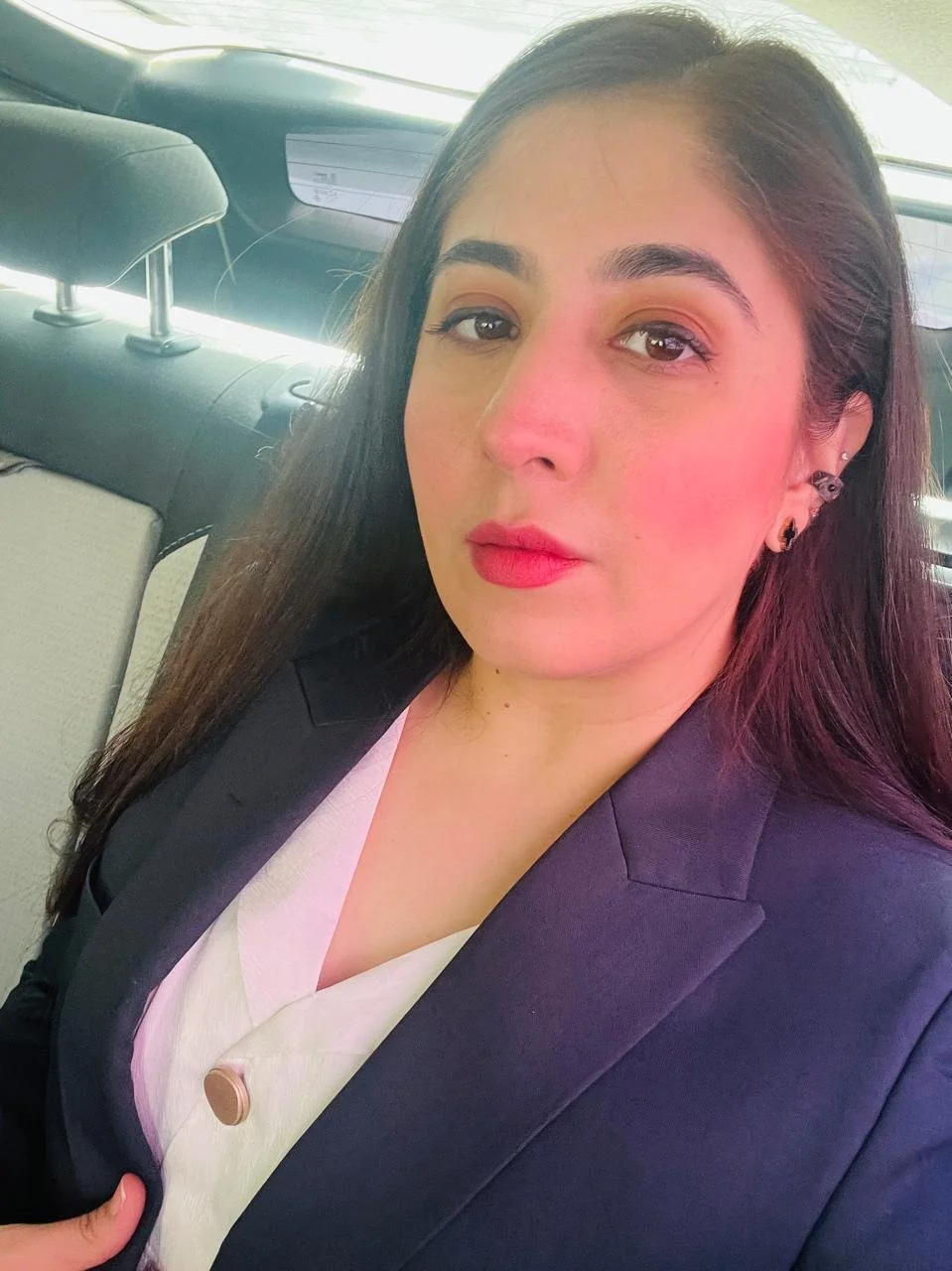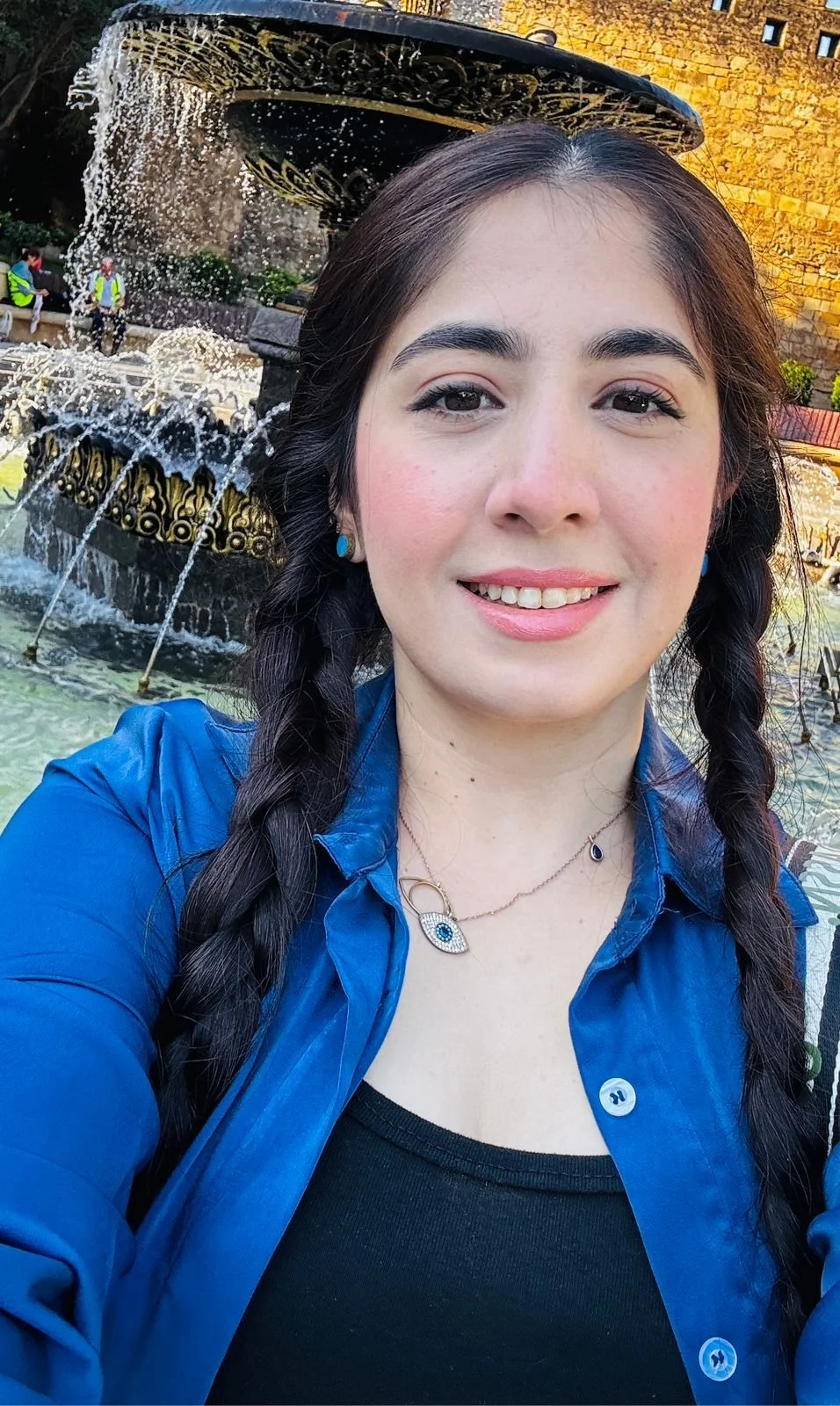Across Borders, With Purpose: Sabahat Hussain’s Journey in Tech and Life
Some people leave a lasting impression not just because of their career milestones, but because of who they’ve been all along. Sabahat is one of those people for me.
We go way back—back to our SZABIST days, when we were stressing over deadlines one moment and I’d look over and see Sabahat somehow still managing to look effortlessly put-together. I wasn’t even into makeup or fashion back then, but she made me notice it. Her style, her energy, the way she carried herself—it all just had this quiet confidence. I think she may have unknowingly planted some early seeds of inspiration for my own self-care journey.
But beyond all of that, what’s stuck with me over the years is her quiet strength and unwavering focus. Watching her journey—from software to data governance, from Pakistan to Saudi Arabia, and now as a leader—has been such a joy. She’s taken bold leaps, embraced change, and always shown up with authenticity and heart.
This interview meant a lot to me—not just because of our history, but because Sabahat is living proof that you can lead in tech with both grace and grit. And yes, you can still squeeze in a pedicure or a skincare routine while doing it.
Career Journey & Inspiration
We’ve come a long way since our SZABIST days, and it’s been so inspiring to watch your path unfold—from Pakistan to Saudi Arabia, and across so many different roles in tech. What has this journey been like for you, and how has it influenced the way you see your work and purpose today?
That’s a great question—and such a nostalgic one, tying it back to our SZABIST days. It really has been quite a ride, now moving from Pakistan to Saudi Arabia and exploring different roles in tech along the way.
My journey from software engineering to Data Management & AI has been both challenging and rewarding. Each transition taught me something new and helped shape my perspective—especially the importance of adaptability and flexibility.
Working in such a fast-evolving field has influenced how I approach my work: I’m always striving to learn, grow, and stay curious. With Data & AI constantly changing, there’s never a dull moment. It’s been a ride and a meaningful one.
At Tech She Secures, we always ask this question. Tell us about the ‘BADdest’ challenge you’ve taken on in your career—the boldest, most authentic, and driven moment you’re most proud of—and how it shaped you.
Sure! I’d say the BADdest or boldest challenge I’ve taken on was shifting from the software industry to Data management & privacy. It really felt like a leap into the unknown. I was doing well in my role I was at a high point in my career—and suddenly deciding to move away from that and start fresh in a completely different space wasn’t easy.
But that risk taught me so much. It pushed me to grow in ways I never imagined, and it took a lot of authenticity and determination to get through it. Alhamdulillah, I’m really proud of that decision. It’s shaped both my career and my personal growth in such a meaningful way.
The Shift: From Software to Data
You started in software and made a transition into data governance and privacy. What inspired that shift?
The inspiration behind my transition from software Industry to data management came from a desire to dig deeper into the critical aspects of data management.
I started to recognize just how important data management & privacy was becoming—especially in today’s digital and AI-driven world. That shift in the landscape really spoke to me, and I felt compelled to move into a space where I could make a more tangible impact. I wanted to contribute to building environments that are more secure and compliant, and that’s what led me down this path.
What were some of the biggest challenges or mindset shifts during that transition? Did your background in software give you any unexpected strengths as you moved into data governance?
Yes, absolutely. Since I was working in software quality assurance, that background gave me a solid foundation when moving into data management—especially because one of the core domains in data management is data quality.
And honestly, quality is quality—whether it’s in software, data, or any piece of work. If your data isn’t high-quality, how can you expect to use it for meaningful analysis?
Having spent over 7–8 years in the software industry focused on quality work, I had already developed key skills like attention to detail, analytical thinking, and problem-solving. These turned out to be unexpectedly valuable in my transition.
Those same habits—like reviewing every piece of code with care or digging into exceptions and errors—helped me approach data with the same mindset. That foundation made the shift to data governance, data quality, and privacy smoother and more impactful for me.
Navigating Spaces & Building Expertise
What has it been like moving from Pakistan to Saudi Arabia for work, especially as a woman in tech?
Moving from Pakistan to Saudi Arabia for work—especially as a woman in tech, and in the field of data and AI—has been both empowering and challenging.
Navigating a new work culture and environment came with its own set of adjustments, but it’s also been a deeply rewarding experience. This journey has given me the confidence to break barriers and create space for more women in tech, especially women from Pakistan.
What’s been most encouraging is that I’ve felt acknowledged and respected in my role. The work I do doesn’t just represent me—it also represents Pakistan. Before Deloitte, I worked with Midis, and even there I was given the freedom to be myself and lead my work independently, just like I do now. That level of trust and autonomy has been a privilege, especially in a different culture.
And of course, this move has affected my personal life too. I have two school-aged children, and managing everything before traveling is a big task. I make sure they are well fed, their routines are set, and everything at home is running smoothly—because it’s my home, and I want it to feel comfortable for them even when I’m away.
I’m incredibly lucky to have a supportive family. My Mom, my Husband, my siblings—they all step in to take care of the kids. My sisters even stay over to make sure the kids don’t feel my absence too much. I also stay in touch with their teachers and school, so if anything comes up while I’m traveling, I’m still accessible.
That kind of support system has made all the difference. It’s what allows me to pursue my goals without compromising what matters most to me.
You’ve worked in both private and multinational organizations like UBL, HBL, and now Deloitte. What differences have you seen in how they approach data privacy and governance?
That’s a good question. My Data journey started in the banking sector in Pakistan—with UBL and HBL—and then I moved on to work with Midis before joining Deloitte. That’s where I got my first real exposure to working with multinational clients.
When I was at UBL and HBL, I was on the client side. I was the one being supported by consultants. Now, being on the consulting side at Deloitte, I’ve experienced both sides of the table—and that’s made a huge difference. I know exactly what it feels like to be in the client’s shoes, and that helps me better understand their pain points and what kind of support they need.
Each organization had its own unique approach to data privacy and governance. At UBL and HBL, privacy was always the top priority—especially being in the banking sector. We were very focused on protecting customer data, so things like data classification, masking, and implementing security measures were foundational to the work. That’s really where I started getting hands-on experience in those areas.
In consulting, the approach can be a bit different—we often bring in frameworks and solutions across industries. But because I’ve worked in the industry myself, I’m able to tailor those solutions in a way that feels practical and real to the client.
Every organization has its own focus, challenges, and ways of approaching governance and compliance. But having that dual perspective—both as a client and now as a consultant—really helps me support them in a more thoughtful and effective way.
You’re now in a senior role advising major clients—how do you build trust and influence in rooms that aren’t always used to hearing from women?
That’s a tough question—but an important one.
In this role, building trust is key. For me, that comes through authenticity and clear, effective communication. I focus on showcasing my expertise and building meaningful relationships. I always try to create an environment where my voice is not just heard but respected.
I’m fortunate that in the market I work in now, women are given equal opportunities to speak, contribute, and be taken seriously.
That kind of environment makes it easier to lead with confidence and bring value to the table.
Creativity, Self-Care & Staying Grounded
You’ve always had such a creative spark—whether it’s art, fashion, makeup, or self-care. How do you nurture that side of yourself in a field that’s so structured and data-driven? And when life or work feels overwhelming, what’s your go-to self-care ritual?
Even now, I still remember how I used to take care of myself during our university days! Honestly, don’t ask me too much about makeup and fashion—it feels like it’s been ages since I’ve had proper self-care time. I’m just joking…!
But jokes aside, I do make an effort to take care of myself—even if my hair has taken a bit of a hit thanks to the hard water in Saudi and Pakistan. Remember how long it used to be? People used to call me Rapunzel! It’s not quite the same now, but it’s still holding up.
I truly believe it’s important to find balance. While I’m deeply committed to my work, I also try to prioritize my well-being. Creative outlets like fashion, skincare, and small rituals help me stay grounded and recharged.
When I feel overwhelmed, I turn to mindfulness, my skincare routine, or even something as simple as retail therapy. Shopping is definitely my go-to—it might be a pricey remedy, but it makes me happy and helps ease my anxiety.
I also love treating myself to pedicures and salon massages—they really help me unwind. While I’m not as into makeup these days (work and kids keep me busy!), I still invest time in skincare. I’ve got both a day and night routine, and I never start my workday without going through my morning skincare steps.
Of course, self-care isn’t just about beauty. I deal with back pain now and then, so I see a physiotherapist who always reminds me to make time for myself, to feel alive, and to be present with the people I love.
Between work, kids, and family, I’ve learned how important it is to carve out even small moments just for me.
Looking Ahead: Vision, Challenges & the Future of Data
How do you see the data privacy and governance space evolving in the next 5–10 years? What trends are you watching, and what do you see as the biggest challenges ahead?
In the next 5 to 10 years, I see data privacy evolving significantly—especially with the rise of AI-driven compliance tools and more advanced cybersecurity measures.
There’s so much happening with AI right now—ChatGPT and many other tools are becoming part of our everyday workflows. With these rapid developments, our approach to data privacy and security needs to evolve just as quickly.
The biggest challenge ahead will be ensuring transparency while balancing innovation with regulatory compliance. As AI becomes more integrated into how we work, we’ll need to rethink how we manage privacy, security, and data governance.
It’s not just about following regulations anymore—it’s about proactively managing AI’s influence on data. That means updating our policies, frameworks, and processes so they’re ready for a future where AI plays a central role.
To me, AI is both the greatest opportunity and the biggest challenge in this space. We need to move fast, but also be assertive and intentional in how we create privacy and governance structures that are ethical, responsible, and secure.
What role do you think women will play in shaping the future of data and tech? And how can we create more space for them to thrive?
Women will play a crucial role in shaping the future of data and tech—especially by bringing in diverse perspectives and driving more ethical, inclusive practices.
To create space for women to thrive, we need to actively promote gender diversity and provide mentorship. It’s so important to create safe and supportive environments that help women grow in this industry.
I remember meeting a recent graduate who was conducting research on gender diversity in cybersecurity. She told me as per her analysis that in Pakistan, the number of women in cybersecurity is still very low—and one of the biggest reasons is simply lack of awareness. Many women don’t realize this field is open to them.
There’s still a misconception that some roles—like cybersecurity or privacy—are somehow gender-specific. But no job should be limited by gender. Women can work in any domain, at any time, and contribute just as meaningfully.
The good news is, I’m starting to see more women entering cybersecurity and data fields—and a big part of that is mentorship. When women see other women in these roles, it opens the door for them too. That’s why we need to keep mentoring, supporting, and showing what’s possible.
What advice would you give to women starting out in tech—especially those interested in moving toward data, security, or compliance?
For women starting out in tech—especially those interested in data, security, or compliance—my biggest advice is to stay curious and embrace the challenges that come your way.
When I look back at how I started, I realize that every step, every hurdle, was part of the growth. You can’t rush to the end goal. Take it one milestone at a time, learn from each experience, and let those challenges shape you into a stronger version of yourself.
It’s also so important to build a strong support network. Seek mentorship, connect with others in the field, and keep learning. This industry evolves so quickly—especially with how fast AI is moving—so you have to keep upskilling yourself to stay relevant. If you stop learning, you risk falling behind.
And don’t underestimate the power of community. Having someone to talk to, share experiences with, or bounce ideas off makes a huge difference. I’ve seen it in my own journey.
I also just want to say how much it means to me personally to have people like you, Maliha, in my corner. Knowing I can reach out to you—anywhere in the world, anytime I’m stuck—is such a comfort. You’ve created a space where people can find support, solutions, or even just a sense of direction. And now you're passing that on, helping others the same way. That’s incredibly inspiring.
What’s next for you—personally or professionally? Are there any goals or dreams you’re excited to chase in the next few years?
Personally and professionally, I’m really excited about what’s ahead. Right now, I’m in the middle of a major transition—relocating to a new country, adapting to a different culture, and embracing all the challenges and opportunities that come with it.
With that change, I’m focused on continuing to grow in the field of data governance and in leadership role. I want to deepen my expertise, make meaningful contributions, and be part of driving impact in the industry.
I’m also actively involved in several communities like Women in Tech, Women in Data, and Open Data—where I mentor and support other women looking to build careers in this space. Helping others find clarity and confidence in their journeys is something I care deeply about.
Looking ahead, my dream is to fully embrace this next chapter with purpose—to grow, to lead, and most importantly, to uplift others along the way. At this stage of my life, I feel strongly about giving back. Whether it’s helping someone navigate a new opportunity or offering guidance through a career challenge, I want to be a resource and a support system.
And yes, maybe it’s the mom in me—I do tend to "mom" everyone I care about! My juniors always say they feel like my kids. I pamper them, guide them, and root for them just like I do with my own children. That instinct to care and nurture has become a big part of how I lead.
Closing Reflections
This interview meant a lot to me—not just because of our history, but because Sabahat shows exactly what it looks like to lead in tech with both grace and grit.
She’s the same Sabahat I’ve known since our university days—grounded, intentional, and always lifting others as she climbs. Whether she’s managing global clients, mentoring the next generation of women in data, or making sure her kids have everything they need before she travels for work, she does it all with calm strength and quiet confidence.
There’s something incredibly powerful about watching someone grow and realizing that the qualities you admired in them back then—the care, the drive, the heart—are the very things that continue to define them today. Sabahat doesn’t just adapt to change—she owns it. And she reminds the rest of us that success can look like ambition and softness at the same time.
And yes, you can still squeeze in a pedicure or a skincare routine while doing it.
Sabahat, thank you for showing up in this world just as you are and for continuing to inspire me (and everyone lucky enough to know you). You’ve always had that special spark. I'm just so glad the world gets to see it now too.
Maliha
Disclaimer: The content on this blog and website reflects a combination of my personal experiences, perspectives, and insights, as well as interviews and contributions from other individuals. It does not represent the opinions, policies, or strategies of any organization I am currently affiliated with or have been affiliated with in the past. This platform serves as a personal space for sharing ideas, lessons learned, and meaningful reflections.
